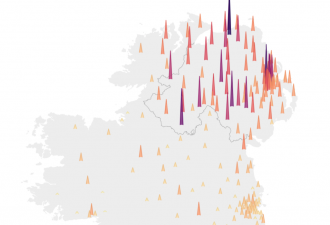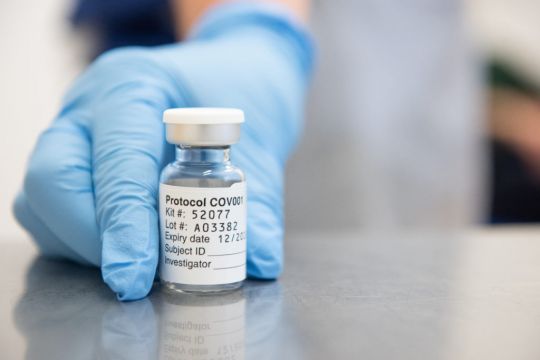British scientists have defended Oxford University and AstraZeneca after questions were raised about the results of their Covid-19 vaccine trial.
AstraZeneca has said it will most likely carry out a further global clinical trial to assess the efficacy of its vaccine after a surprise result found 90 per cent protection was achieved when people were given a half dose followed by a full dose.
The pharmaceutical giant has acknowledged the finding was as a result of a dosing error, but it did not expect any new trial to hold up regulatory approval in countries including the UK.
Oxford and AstraZeneca’s overall efficacy from two different dosing regimes in a phase three trial was announced last week at a combined figure of 70 per cent.
A half dose followed by a full dose was found to be 90 per cent effective, according to a subset of data, but the efficacy was 62 per cent for people given two full doses.
Under 55
Earlier this week, Moncef Slaoui, the scientific head of the US’s Operation Warp Speed – the programme to supply America with vaccines – told US reporters the half-dose regime was only given to people aged 55 and under.
This could pose problems as scientists across the globe are hoping to find vaccines that work in older people who are most at risk from Covid-19.
Results from an earlier phase two study published in The Lancet medical journal showed the vaccine produced a strong response in all age groups.
Neither AstraZeneca nor Oxford disclosed that the 90 per cent figure was based on adults aged 55 and under.
It comes as some US scientists have questioned a lack of detail in the results put out last week by AstraZeneca and Oxford.
Some experts have also raised questions about the use of two differently designed clinical trials in Britain and Brazil, and pooling analysis from both. They also say it is unclear how many coronavirus cases were found in each group of the trial.
Today we announced high-level results from the AstraZeneca @UniofOxford #COVID19 vaccine clinical trials. https://t.co/eTz7cdY4hN pic.twitter.com/d6Wzo11Ftr
— AstraZeneca (@AstraZeneca) November 23, 2020
Advertisement
Helen Fletcher, professor of immunology at London School of Hygiene and Tropical Medicine (LSHTM), said: “What’s remarkable is that Oxford University and AstraZeneca have gone from square one to 100 million doses in less than a year.
“It’s not surprising if some manufacturing issues were still being ironed out when they started clinical trials but early stage trials are all about safety and the safety data we have seen has been very robust.”
She said it was important to wait for the full dataset to be published.
“I also think it’s possible that a lower initial vaccine dose could result in higher vaccine efficacy,” she said.
'Cherry picking'
“More is not necessarily better when it comes to vaccines and immunotherapies. You need to stimulate an immune response but if you push too hard you can get hit a negative feedback loop where the immune system seeks to control and dampen down the response," she said.
Stephen Evans, professor of pharmacoepidemiology at LSHTM, said “the idea that no protocol has been published (by Oxford and AstraZeneca) is simply not true”.
He added: “The variety of age groups and dosing regimes is a feature of a number of the vaccine trials and not just the Oxford AstraZeneca vaccine.
“The way the data are put together will have been specified in the protocol and scrutinised very carefully by regulators to ensure that there is no ‘cherry picking’ of the results.”
Joy Leahy of the Royal Statistical Society said the scientific community was “rightly seeking more data in the form of a peer-reviewed paper”, but a press release was put out because of the risk to financial markets from too many people knowing the results while awaiting peer-review publication.
A spokesman for AstraZeneca told PA on Thursday: “As the development of the vaccine was scaled up into the Oxford-sponsored Phase II/III trial, the measurement used for earlier trials was shown to over-estimate the strength of dose in the new larger batches, resulting in a half dose of the vaccine being administered.
“This was reviewed by the independent Data Safety Monitoring Board and the UK regulator, both of whom approved the continuation of this dosing regimen and the regulator publicly confirmed that there was ‘no concern’.

“All other regulatory authorities were informed that we would continue to monitor and study this cohort. Given the high efficacy we have now seen with the different dosing regimens, there is strong merit in continuing to further investigate these findings in order to establish the most effective dosing regimen.
“We are in discussions with regulators around the world to evaluate these findings and we look forward to the publication of the peer-reviewed results, which has now been submitted to the journal.”
Oxford University said it would not comment ahead of the data appearing in a peer-reviewed publication.







